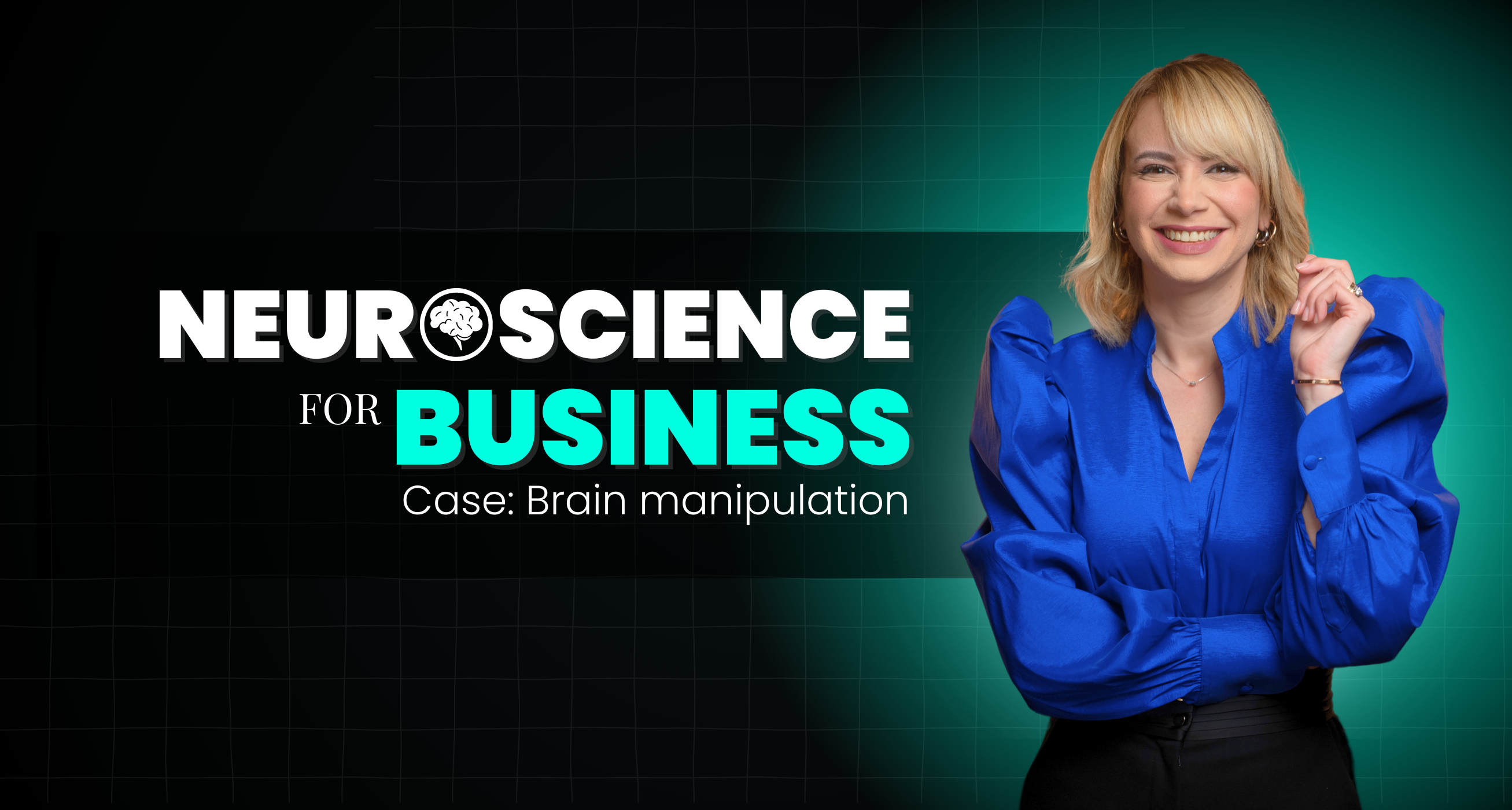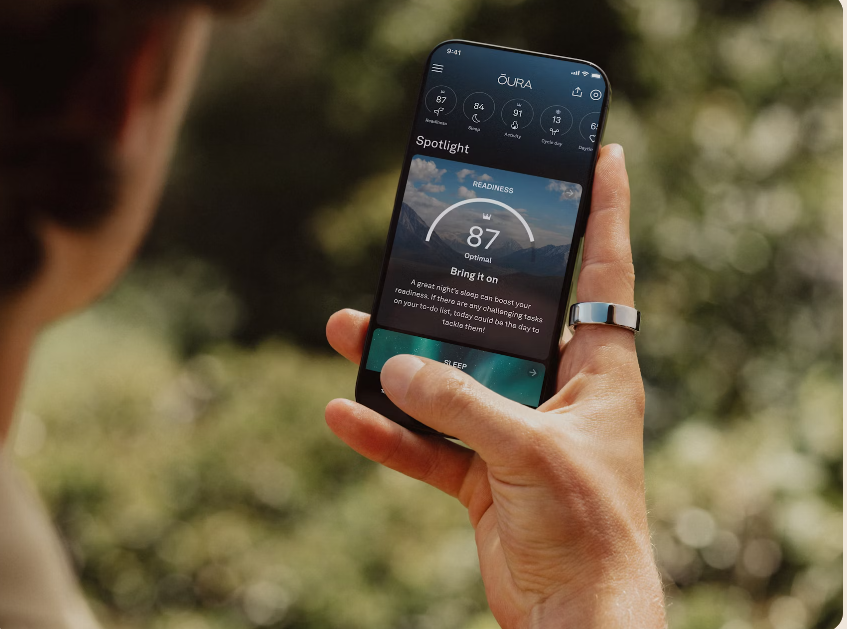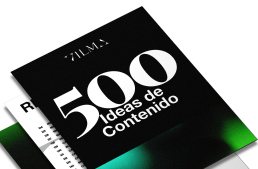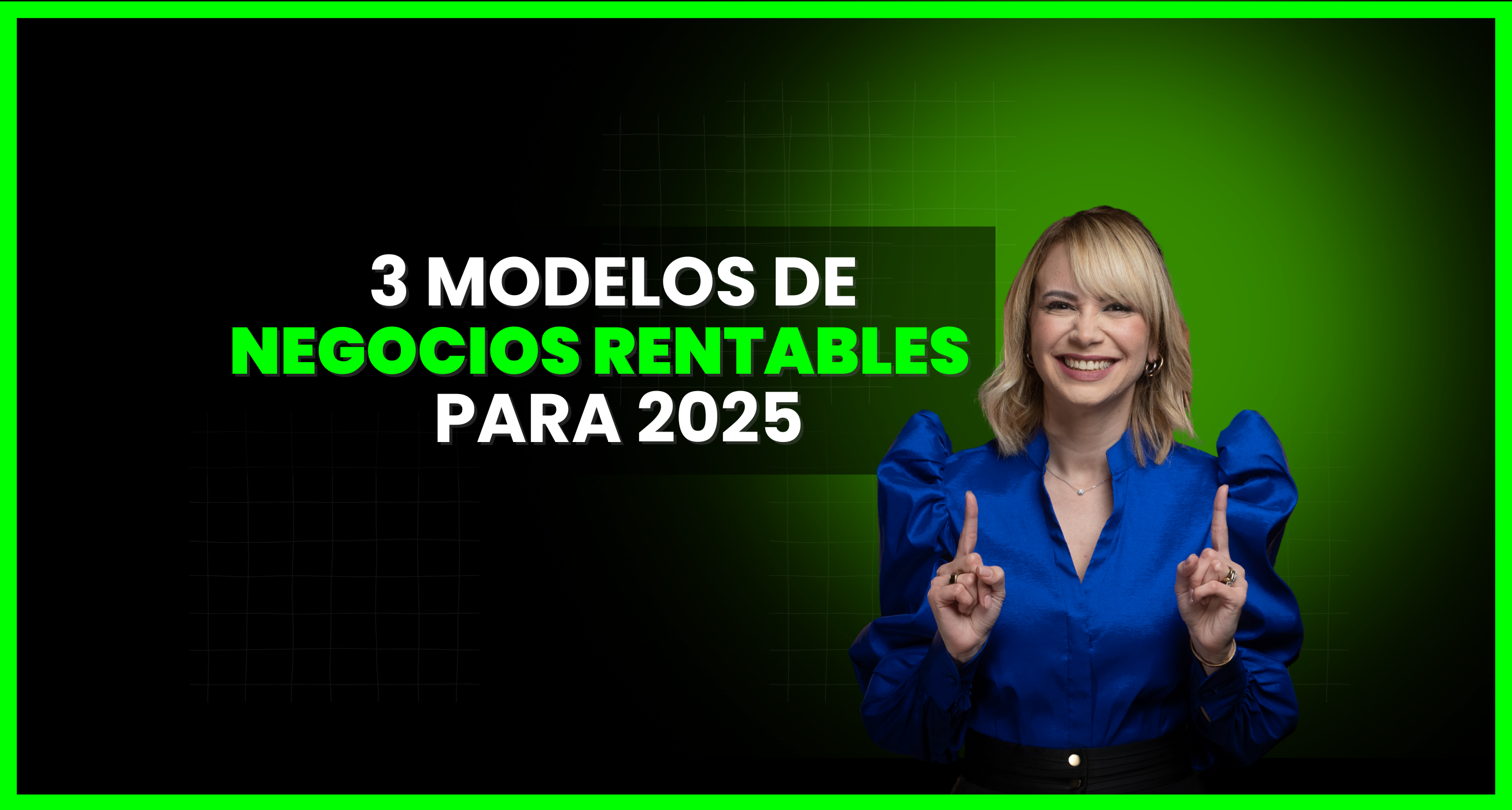
Have you ever tried wearable technology to improve your lifestyle? I had, and honestly, thought it would only be for personal issues, but neuroscience for business showed me I was wrong.
It all started because I was having sleep problems. I remember seeing an influencer using a ring to track sleep, and I thought I was worthy of trying it after endless nights of trying to sleep with an uncomfortable Apple Watch.
I bought one of the first versions of Oura, a trendy ring device that allows you to monitor your sleep, heart rate, stress, and even track your exercises.

Furthermore, I never thought a wearable ring could help me become a better leader and make better decisions.
Using and analyzing data from wearable technology has been one of my hacks to become a high-performance leader.
Understanding the patterns behind my sleep performance has enhanced my productivity and health. I now understand better what happens with my body, so I make different and better decisions with my data.
Neuroscience for business and decision-making
While I'm enjoying this new era where everything has AI integrated and this movement of enhancing humans, I'm concerned about mental privacy and data security using some apps, software, and wearable technology.
I'm also worried about the significant influence that this technology is having on us.
I noticed that some data could be manipulating my brain, and I'm afraid to make bad decisions that could have worse repercussions.
For example, one of the things that Oura tracks is your stress.
I remember working on a crucial launch campaign with a client, and that night, as always, I was analyzing my data.
It took me one minute to see my stress spike level with a client versus how I feel regularly.
I froze. That data made me make an important decision to avoid taking on more projects or clients with that intensity.
It was an impulsive decision, and that's what worries me. Is this technology manipulating our decision-making or enhancing our intuition and brain function through neuroscience for business?
¿Brain Manipulation or Enhancement?: The Streak Strategy
Another feature that could be considered brain manipulation is the notifications behind the use of this technology.
Some of them use the “streak strategy” that consists of tracking the human's daily engagement with the technology, which creates a psychological commitment loop that keeps me invested in using technology to improve.
I remember postponing my running exercise because my Garmin Watch (another wearable technology) was low battery.
Vulnerably speaking, I have a dependency that I cannot get to my fitness routine without recording the sessions.
This phenomenon relates to “disconnection anxiety,” where the absence of technology causes me discomfort and could even stop me from doing a workout.
For that reason, this could be a form of brain manipulation.
However, a British Journal of Sports Medicine study concludes that activity trackers positively influence health-related decision-making, and I agree.
Neuroscience for business and international leadership
Despite these fears and worries, I’m still using and will continue to use technology to enhance my self-awareness and manage my stress, sleep, and energy levels.
For my work as an international speaker, I have to travel every week and sometimes to more than one country in less than five days.
Without my Oura device, I would probably force my body to undergo critical rest after a red-eye flight.
I feel more secure having the necessary data to know when to take a quick nap to recharge or, even better, what days I can go all in after a good night's rest.
Business neuroscience and the future of technology
So, is it worth it? Definitely yes.
In the end, wearable technology has much to offer regarding health, lifestyle, and productivity. But there's a price that we might need to be fully aware of or fully understand.
Are we gaining control over our decisions or surrendering to brain manipulation when we use technology?
Let's see what the future awaits for us while we use technology consciously.
If you want to download this case study in PDF, click on this link or on the banner that I share with you below:
You might also be interested in: Can money buy happiness? This is what science shows.

Suscríbete y recibe en tu mail:
500 ideas para crear posts que llevarán tu blog a otro nivel. Suscríbete y recíbela en tu correo.
500 ideas para crear posts que llevarán tu blog a otro nivel. Suscríbete y recíbela en tu correo.









Compartir en: